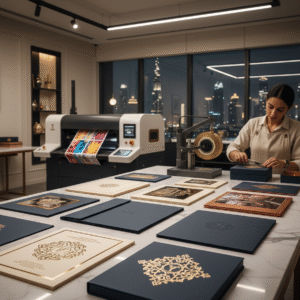In today’s advanced manufacturing world, metal casting continues to be one of the most vital processes for creating durable, detailed, and high-performance components. Among the most valued materials in foundry work are brass and bronze, known for their strength, corrosion resistance, and aesthetic appeal.
For industries seeking excellence, brass casting and bronze casting offer unmatched quality, versatility, and reliability. Trusted manufacturers delivering top-tier brass casting services provide customized solutions that meet the specific needs of industrial, architectural, and artistic applications worldwide.
What Is Brass Casting?
Brass casting is the process of melting and pouring brass — an alloy primarily composed of copper and zinc — into a mold to form various metal parts. Because of its unique composition, brass combines excellent strength, corrosion resistance, and machinability, making it ideal for both decorative and industrial uses.
From valves and fittings to musical instruments and ornamental fixtures, brass casting delivers precision and durability.
Why Choose Brass Casting Services
Professional brass casting services ensure accuracy, consistency, and quality at every step of production. Modern foundries use advanced furnaces, molding systems, and CNC finishing tools to produce flawless castings that meet global standards.
1. Superior Machinability
Brass can be easily machined and shaped, allowing for intricate designs and complex geometries.
2. Corrosion Resistance
Brass is naturally resistant to rust, moisture, and chemical exposure, making it perfect for marine, plumbing, and outdoor applications.
3. Aesthetic Appeal
With its golden sheen, brass provides a luxurious appearance that enhances decorative items, sculptures, and architectural hardware.
4. Strength and Longevity
Brass maintains its strength under high pressure and temperature, ensuring long-term reliability in mechanical and industrial components.
By partnering with a reliable provider of brass casting services, industries benefit from expert craftsmanship, rigorous quality testing, and precision engineering.
Applications of Brass Casting
Brass casting is used across multiple industries due to its adaptability and performance. Some of the most common applications include:
-
Plumbing & Sanitary Fittings: Valves, taps, and pipe connectors that resist corrosion.
-
Electrical Components: Terminals, switches, and connectors that conduct electricity efficiently.
-
Marine Industry: Propellers, pumps, and fixtures resistant to saltwater corrosion.
-
Architectural Elements: Door handles, railings, and decorative facades.
-
Musical Instruments: Trumpets, saxophones, and other brass instruments.
With high dimensional accuracy and fine surface finishing, brass castings produced by expert foundries stand out in both appearance and functionality.
The Brass Casting Process
Modern brass casting services use advanced techniques to ensure superior quality. The general process involves the following steps:
-
Pattern Making: A pattern or model of the part is created from wood, metal, or plastic.
-
Mold Preparation: The pattern is placed in a sand mold, forming a cavity for the molten brass.
-
Melting and Pouring: Brass is melted at high temperatures and poured into the mold.
-
Cooling and Solidification: Once cooled, the casting solidifies and takes its final shape.
-
Shakeout and Cleaning: The sand mold is removed, and the casting is cleaned and finished.
-
Machining and Inspection: Each part is precisely machined, polished, and inspected to meet specifications.
Leading manufacturers use computer-aided design (CAD) and simulation tools to ensure consistency and accuracy in every brass casting project.
Understanding Bronze Casting
While brass is known for its brilliance and workability, bronze casting offers exceptional durability and resistance to wear and corrosion. Bronze — an alloy made primarily of copper and tin — is one of the oldest and most trusted metals for casting applications.
Bronze casting delivers high strength and longevity, making it suitable for industrial machinery, marine components, and artistic sculptures.
Advantages of Bronze Casting
1. Outstanding Durability
Bronze offers superior resistance to friction and mechanical wear, ideal for bearings and bushings.
2. Corrosion Resistance
Bronze does not rust, making it perfect for outdoor and underwater environments.
3. Excellent Thermal Conductivity
It dissipates heat efficiently, making it valuable for engineering and electrical components.
4. Timeless Aesthetic Appeal
Bronze’s rich, reddish-brown color adds character to artistic and architectural pieces.
Applications of Bronze Casting
Bronze casting is widely used in industries such as:
-
Marine Engineering: Propellers, pumps, and fittings.
-
Automotive & Industrial Machinery: Bearings, gears, and bushings.
-
Construction & Architecture: Statues, plaques, and door hardware.
-
Aerospace: High-performance components requiring strength and low friction.
Whether for performance-driven components or aesthetic pieces, bronze casting ensures lasting quality and elegance.
Why Choose Professional Brass and Bronze Casting Services
Professional foundries bring experience, technology, and quality control to every project. Here’s what makes expert brass casting services and bronze casting providers stand out:
-
Precision Engineering: Advanced molds and simulations for accuracy.
-
High-Quality Alloys: Only certified raw materials are used.
-
Rigorous Testing: Each casting undergoes quality, hardness, and tensile tests.
-
Custom Manufacturing: Tailored solutions for industrial and artistic requirements.
-
Finishing Excellence: Polishing, plating, and machining for ready-to-use products.
By choosing a reputable manufacturer, you ensure long-lasting performance, reduced maintenance, and aesthetic perfection.
Sustainable and Modern Casting Practices
Today’s leading foundries are adopting eco-friendly and energy-efficient methods in brass casting and bronze casting. Recycled metals, advanced furnaces, and waste-reduction systems help minimize the environmental footprint while maintaining high production quality.
This sustainability-driven approach reflects a commitment not just to manufacturing excellence but also to environmental responsibility.
The Future of Metal Casting
The future of brass and bronze casting lies in automation, 3D printing integration, and digital simulation for perfect mold design. Foundries that embrace modern technologies can produce faster, more accurate, and cost-effective results.
Companies that invest in innovation — like those offering advanced brass casting services — continue to lead the way in metal manufacturing, delivering parts that meet the evolving needs of industries worldwide.
Conclusion
Brass casting and bronze casting remain indispensable techniques in modern metalworking, combining strength, beauty, and precision. From industrial machinery to artistic masterpieces, these casting methods provide durability and performance across countless applications.
Professional brass casting services ensure that every component, whether functional or decorative, meets the highest standards of quality and craftsmanship.




